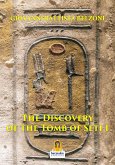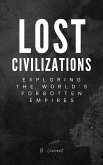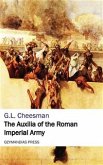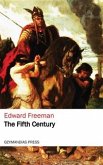In this new century, the story of the world was the story of Rome herself, for she ruled over nearly all the world that was known to the men of these olden times. Let us remember that we are still talking of two thousand years ago, though we have almost unconsciously glided from the era known as B.C.—that is, Before Christ—to that known as A.D., Anno Domini, the year of our Lord. It is sometimes hard to realise all that had happened before this time in the far-off ages of long ago. And yet it is all so interesting and so vastly important. It shows us how earnest work and toil raised each nation in turn to a high position, and how the acquisition of wealth or the greed of conquest brought that nation low. We must now see how Rome too,—"Golden Rome," as she was called by the poets of her day,—the Mistress of the World, fell, owing to her desire for wealth and display, indolence and luxury, and how great and terrible was her fall. While the child Christ was growing up in his quiet home in the East, Cæsar Augustus was still ruling the great Roman world, of which Rome itself was the centre. Augustus did what he could to make Rome, the capital of the whole world, worthy of her name. Like Pericles at Athens in the olden days, he built beautiful buildings and tried to make the city as famous as possible. Many races met within her gates, many languages were spoken in her streets. Eastern princes and wildly-clad Britons and Gauls, low-browed Egyptians and sunburnt Spaniards,—all might have been seen at this time in the Forum at Rome, together with the Romans and Greeks...
Hinweis: Dieser Artikel kann nur an eine deutsche Lieferadresse ausgeliefert werden.
Hinweis: Dieser Artikel kann nur an eine deutsche Lieferadresse ausgeliefert werden.









